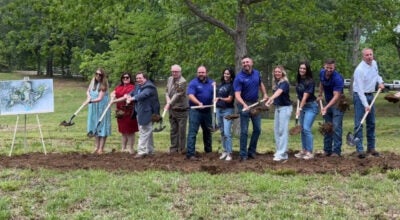Senior homeowners find new option in reverse mortgage for retirement
Published 12:00 am Friday, September 17, 2004
NATCHEZ &045;&045; Reverse mortgages, which allow senior homeowners to borrow cash against their home equity without making monthly repayments, will likely become more common as baby boomers grow older, according to one home mortgage executive.
&uot;In the last two years, financial planners have begun to include reverse mortgages in the retirement kit,&uot; said Jeffrey Taylor, vice-president of senior products for Wells Fargo Home Mortgages.
Taylor said the average senior in today’s reverse mortgage market is age 75 to 77.
&uot;It’s a new experience for them. Their homes are free and clear for the most part, and they’re using them to pay for medical expenses, to pay off a first mortgage or to supplement their retirements,&uot; Taylor said.
Following 10 years of joint research by the American Association of Retired Persons and the U.S. Department of Housing and Urban Development, Congress founded the Home Equity Conversion Mortgage (HECM) program as a pilot study in 1989, Taylor said.
&uot;Initially, 50 lenders were each allowed to make 50 loans. Wells Fargo was one of those lenders selected at random in a lottery. Of the 50 original lenders, at least half are still predominant lenders in the reverse mortgage market, and Wells Fargo is the leader,&uot; he said.
The volume of HECM loans, fully-insured by the Federal Housing Administration, grew as borrowers learned more about how the program works.
&uot;Education and awareness has been 95 percent of the success of the program,&uot; Taylor said.
According to the National Reverse Mortgage Lenders Association, 12,848 HECM loans were recorded nation-wide in the five-month period ending in February of this year &045;&045; a 112 percent increase over the previous year.
HUD figures indicate 58 reverse mortgages were signed in Mississippi during the year ending in May &045;&045; up from 25 the prior year.
But while HECM loans are available in all 50 states, reverse mortgages are not yet offered at major banks or investment firms in the Miss-Lou area.
&uot;It’s a very specialized product, and we just haven’t had much demand for it,&uot; Britton and Koontz mortgage representative Francis Cothren said.
Concordia Bank and Trust, Co., AmSouth Bank, and investment firms such as Salomon Smith Barney and Century Group dont offer reverse mortgages either.
&uot;We’ve attended seminars to learn about reverse mortgages, but we don’t offer the product right now. We may offer them in the future, as the product becomes more mainstream,&uot; Concordia Bank mortgage representative Paula Morris said.
Taylor expects the reverse mortgage market to expand significantly with the next generation of seniors.
&uot;Baby boomers are already pre-conditioned to what a reverse mortgage is. They’ll be attuned to the benefits, and financial planners will be there to help them,&uot; he said.
To qualify for an HECM loan, homeowners must be aged 62 or over and live in their home as a principal residence.
The home must be a single-family residence in a one to four-unit dwelling, a condominium or part of a planned unit development. Homes must also be at least one year old and meet minimum HUD requirements.
Benefits can be drawn in a lump sum, monthly payments or a combination of the two. No income or monthly repayments are required of reverse mortgage borrowers, but HECM loans must be repaid in full when the last surviving borrower dies or sells the home.
Taylor said HECM borrowers can never owe more than the value of their house. Any equity remaining after the debt is settled is retained by the borrower’s estate.
&uot;And borrowers will always get their monthly payments, regardless of what happens to the lender, because the loans are government-insured,&uot; he said.
Borrowers must discuss the HECM program with a counselor from a HUD-approved counseling agency before signing a reverse mortgage. Younger adult family members or friends may attend the counseling session with any prospective borrower.
More information about reverse mortgages and the HECM program can be accessed online through the AARP website at www.aarp.org., or through the NRMLA website at www.reversemortgage.com.





